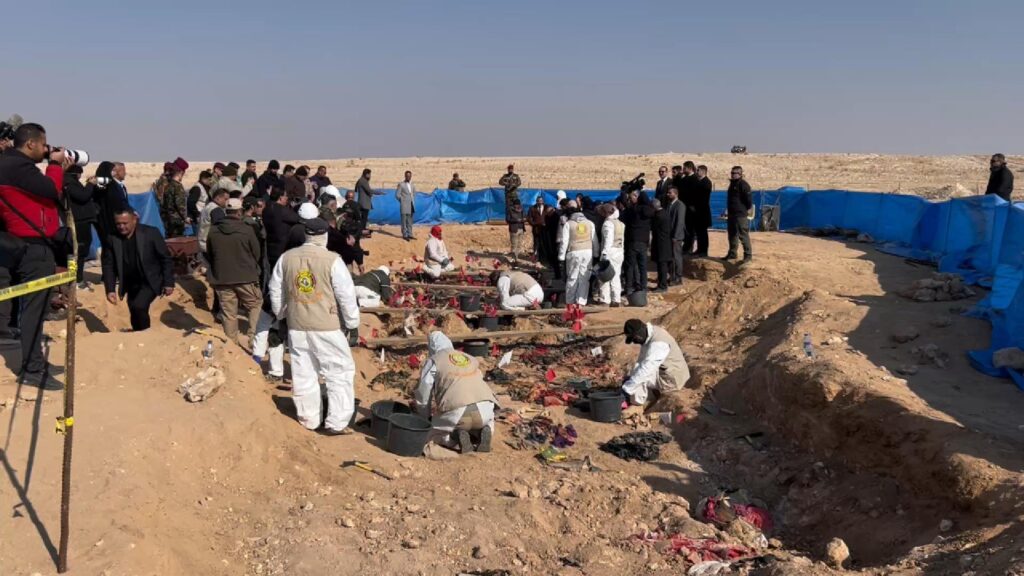Time ripe for KDP-PUK to unite for sake of KRG: Int'l Crisis Group

After last year's Iraqi election, the Kurdistan Democratic Party (KDP) emerged as the largest single party in the country — less lists — while the Patriotic Union of Kurdistan (PUK) reestablished its dominance in its Sulaimani stronghold as well as in Kirkuk and Kurdistani areas of Diyala and Saladin provinces. The KDP also performed well in disputed Nineveh province.
These accomplishments bode well for the Kurdistan Regional Government (KRG) and its role in Iraqi politics, despite overwhelming internal and external rhetoric that pro-referendum supporters would suffer political setbacks if their independence bid failed.
Now a Brussels-based think-tank, the International Crisis Group (ICG), argues that global actors should work to bring the PUK and KDP together.
“Any international effort to advance negotiations between Erbil and Baghdad should begin by encouraging renewed KDP-PUK partnership and reinvigorating the push for political reform in the Kurdish region,” stated the International Crisis Group (ICG) in an analysis piece on Wednesday.
Despite improvements in Erbil-Baghdad relations under new Iraqi PM Adil Abdul-Mahdi, the ICG warns that the fragile state of intra-KDP and PUK politics could hamper further progress.
"If KDP reformists are able to overcome party and family allegiances and make common cause with kindred spirits in the PUK, they could together push for institutional changes in the KRG and open the way for negotiations with Baghdad on a host of outstanding issues," the ICG analysis read.
The PUK and KDP hold a majority of seats in the Kurdistan Region parliament, but have been unable to settle on governmental posts.
"Even if the reformists guided the region out of the post-referendum crisis, family-based politics re-emerged as the preeminent anchor of continuity," stated the ICG.
It labeled reformists as those who went along with the referendum because of "family and party," while hardliners supported Kurdish independence under the guidance of then Kurdistan Region President Masoud Barzani "wholeheartedly."
"But if anti-reform elements impose themselves in the KDP, the party might try to slake its apparent thirst for hegemony in the Kurdish region, as exemplified by the referendum drive. Such a move, in turn, would bolster the PUK’s hardliners,” the ICG argued.
Security, intelligence, and military apparatus — unified and free of party influence — have been a longstanding barrier between PUK-dominated Sulaimani and KDP-dominated Erbil.
“[T]he two parties’ stranglehold on the region’s institutions prevented other parties from emerging as effective alternatives to the KDP/PUK, encouraged high-level corruption and plunged the region’s political system into a crisis once the strategic partnership fell apart in 2017,” the ICG added.
The Kurdistan Region held a referendum in September 2017. Ninety-three percent votes of cast indicated ‘Yes’ for independence from Baghdad. Kurdistan then agreed to “freeze” the results of the referendum.
That followed a series of perceived punitive measures implemented by Baghdad, including international border and airport closures, the federal takeover of Kirkuk and all disputed areas, and the halting of oil exports by the KRG through the Kirkuk-Ceyhan pipeline.
Since the events of October 2017, nearly all of the measures effectively have been removed except federal control of the disputed areas.
After going to Baghdad, KRG PM Nechirvan Barzani led a regional and global tour to reaffirm relations with Erbil and foreign capitals. The stops included Tehran, Ankara, Paris, the Vatican, Rome, and other states which had opposed the timing of referendum.
As the Kurdistan Region’s presidency law is expected to be amended, the KDP nominated Nechirvan Barzani to the post, and Masrour Barzani — Masoud’s son — to the post of prime minister.
“The latter nomination signaled a comeback of the party’s hardline factions led by Masrour, who had been in charge of the region’s security apparatus,” the IGC said.

